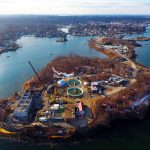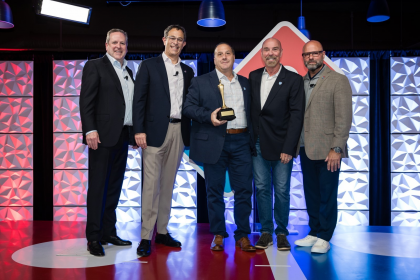By Editorial Staff et al
We continue our series that examines criteria for evaluating candidates for City Council. In this editorial, we address concerns about public health and safety. Protecting public health is one of the most important duties of the City Council.
The reality is that our wastewater system continues to pollute local water bodies, despite the millions of dollars the City has spent in recent years. It stands as a sad contradiction to our claim to be an “eco-municipality.”
Portsmouth also has the highest sewer and water rates in New Hampshire.
We wish to begin our assessment of the situation by acknowledging the important work that has been done, as well as the hardworking men and women of the Department of Public Works (DPW).
It takes hard work to dig up and replace Portsmouth’s aging pipes in the heat of summer or the pouring rain. Processing and treating wastewater is an essential job that takes place without much recognition.
The people who perform these critical tasks deserve our appreciation and thanks.
Compromising progress
Unfortunately, decisions made by the City’s leadership over the years have compromised the progress the City needs to make to provide a truly safe and healthy environment for all residents.
The City had the opportunity to upgrade the Peirce Island facility in a manner that would have allowed wastewater to be fully treated before being released into the Piscataqua River.
Unfortunately, City leaders at the time chose to build a facility with small chlorine contact tanks. The City requested and received a waiver to allow for only partial treatment of water when daily volume exceeds 6 million gallons.
The City also has a system that still includes some old sewer pipes that carry a combination of rainwater and sewage. Heavy rainfall that exceeds the capacity of these combined pipes causes overflow into South Mill Pond and the Piscataqua River.
Some untreated sewage ends up in these bodies of water. Residents have noticed toilet paper floating in South Mill Pond.

Part of the problem comes from issues with the pump at the Mechanic Street pump station.
Although the money was available to provide for a secondary pump, it was never purchased. Now, the pump there is down for repairs, and temporary pumps in use seem unable to keep up with the volume from this year’s heavy storms.
This isn’t breaking news. It’s a problem that Portsmouth has had for years.
That’s a good reason to pursue an aggressive remedy to the situation. And yet the Council has been noticeably silent on the issue.
At the very least, the City could ensure that the notification system created to alert residents to the release of Combined Sewer Overflows (CSOs) works properly. It does not.
The City claims that “real time” updates are provided on overflows, but an alert for a September 18 overflow was not issued for 14 hours.
The ultimate responsibility for the wastewater system lies with the City Manager, who answers to the City Council. We submit that the Council has permitted a lax approach to an obvious and ongoing public safety issue, even as taxpayers shell out the highest payments in the state for their sewer and water bills.











